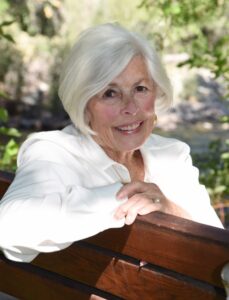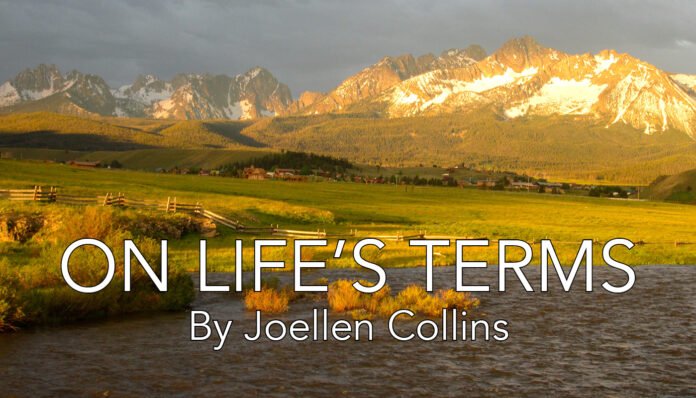By JoEllen Collins

We recognize that the way people process grief is as varied as are the deceased, their mourners, and the circumstances behind the losses suffered by those left behind. I don’t presume to judge how anyone deals with such pain. Through experiencing loss and living long enough to say farewell to many special people, I have developed a way that honors their lives and comforts my soul. I can treasure the best of what life I have been given, enjoy and care for the friends and family still around me, and let them know how special they are. Most especially, I must be grateful for having had the blessing of experiencing their place in my life.
Lately, this view of surviving devastating emotional journeys has become more important to me, as I experience the slow, uncomfortable last few weeks of a very close but seemingly odd friend. I won’t spell out details or names, but as I put this relationship and our history in perspective, I know I have been blessed.
Shortly after graduation from UCLA, I became engaged to an intelligent, handsome, and charming man. While I was teaching at Santa Monica High School, he spent most of our courtship in Virginia Beach, fulfilling his military obligation for a very distant year before we were married. In my generation, most girls simply accepted the differences between personalities, their attitudes about parenthood, and certain basic tenets of marriage. My naivete supported those ideas. I can only say that my knight in shining armor and I survived less than two years.
I thus suffered considerable emotional pain and didn’t see my ex-husband at all. I adored his mother and, after the divorce, I still visited her for afternoons of tea and conversation. Years later, my ex-husband reached out to me, and, after I moved to Idaho, we rarely mentioned our history as we occasionally enjoyed my visits back to L.A. In short, as the decades sped by, we became close friends. Deep apologies ensued, and I ceased blaming him for what had happened. Maturity, understanding, and sophistication helped.
Now, as his illness progresses, I have spent hours on the phone and email with his nephew and acknowledged how precious this healing was for both of us after that early failure. I will always remember the lessons I learned from this experience: people do change and, despite trauma, life can still be rich and meaningful. Forgiveness and not harboring resentments leaves a door open to unexpected reconciliations. I will always be thankful for the times through which we became dear friends. I never imagined that I would be saying any of this, but that is the gift I’ve received from this man. My life was enriched in unexpected ways by our mutual growth and a bit of wisdom: he made me laugh and supported me emotionally. He became someone I will so regret not having around to call, to email, to tease, to exchange nicknames and to dive into positivity instead of rue.



